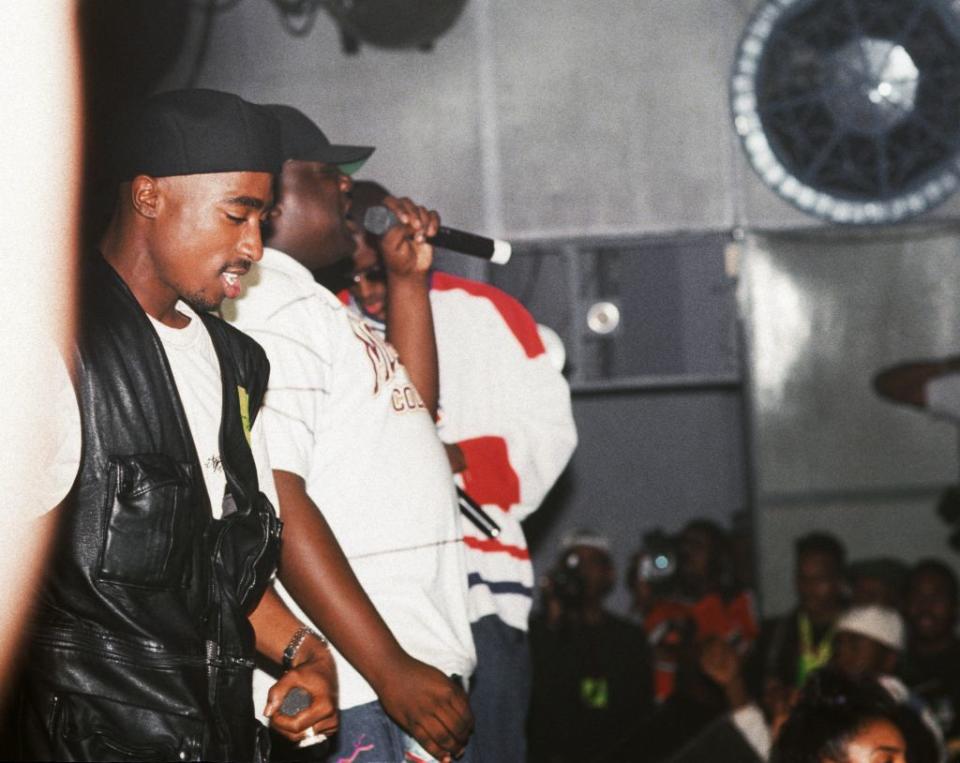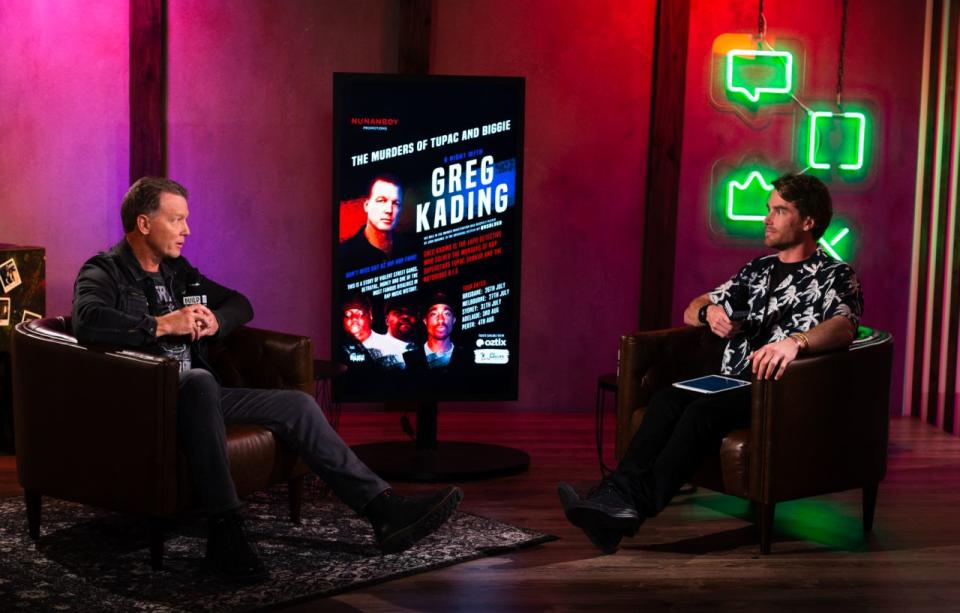Detective reveals the moment rapper Tupac 'signed his death warrant'
In a genre of music that is often defined by bravado, rivalries and turf wars, there is one rivalry that eclipses them all – the friendship turned bitter feud between rappers Biggie Smalls and Tupac Shakur.
The very public battle between the two rappers, and their extended crews and record labels, came to define the cultural dichotomy between America’s west coast and east coast rap music in the 90s.
And ultimately led to both artists being gunned downed in their mid 20s, at the height of their fame and power.
Conspiracy theories have swirled around the murders ever since, ranging from the plausible notions that the LAPD and Tupac’s boss and record label mogul Suge Knight were behind the hits to the most ridiculous: that Oprah was involved.
The man tasked with wading through the conspiracies to solve the murders of Tupac and Biggie – which happened in 1996 and 1997 respectively – was in Australia recently speaking to BUILD Series Sydney about the career-defining investigation.
Former Los Angeles Police Department detective Greg Kading led a multi law-enforcement task force that has now formed the basis of a recent Netflix series.
The series has introduced a new generation to the music of Biggie and Tupac – which is fitting because when Kading took up the case he had to learn all he could about the two men and their music.
“When I got involved in the case it was nine years after the fact, it was a cold case so I had to kind of educate myself as to who these guys were and how they were impacting the genre of music they were involved in,” he explained in a live interview with BUILD.
What was immediately apparent – particularly in so-called beef songs like Tupac’s Hit ‘Em Up – was the “violence that was inherent in the music”, he said.
“When you bring that element into the studio you’re going to have some problems,” he said.
While both men projected an outlaw image, the truth was a little different.

Biggie Smalls (real name Christopher Wallace) grew up in New York and was involved in small-time organised crime and drug pushing.
Tupac on the other hand, whose parents were black panthers, had a similar revolutionary zeal but had grown up in relative affluence and attended drama schools and ballet classes.
But at the height of their stardom there was unequivocally deep ties to organised crime on both sides and “that gang environment is what ultimately led to their demise”, Kading said.
The night Tupac ‘signed his death warrant’
“Tupac went to ballet school, he was a poet and wanted to be an actor,” Kading said.
It wasn’t until he was later surrounded by the gang element that “he found an affinity and belonging that he had longed for”, he explained.
“But he had no business being involved in that.”
The night Tupac was fatally shot, he had earlier got into a fight with rival gang members in a Las Vegas casino on the night of a boxing fight.
“When he ran across the lobby of that casino and slugged another gang member, he signed his own death warrant. That wasn’t his business to do that,” Kading said.
“It cost him his life.”

The man he hit in the casino lobby, a Southside Crip gang member named Orlando Anderson, was the man who later pulled the trigger in the shooting that killed Tupac.
“There was a whole a whole bunch of things that contributed ... but ultimately, he was the killer,” Kading said.
In response, Tupac’s record label boss and friend Suge Knight retaliated and had gang member and gun-for-hire known as Poochie kill Biggie Smalls.
Both men were killed before they could be charged.
Anderson was shot and killed in 1998 while trying to collect a drug debt.
While Poochie “was riding his motorcycle up central avenue in Los Angeles and a gunman came up and shot him ten times in the back and killed him”, Kading recalled.
As a result, despite confessions from those closely involved in both murders, the Tupac and Biggie cases remain technically unsolved.
Watch the full interview here.
Do you have a story tip? Email: newsroomau@yahoonews.com.
You can also follow us on Facebook, download the Yahoo News app from iTunes orGoogle Play and stay up to date with the latest news with Yahoo’s daily newsletter. Sign up here.



